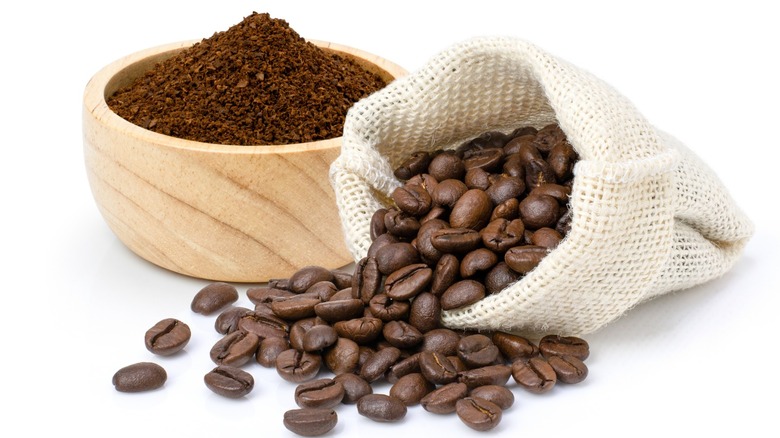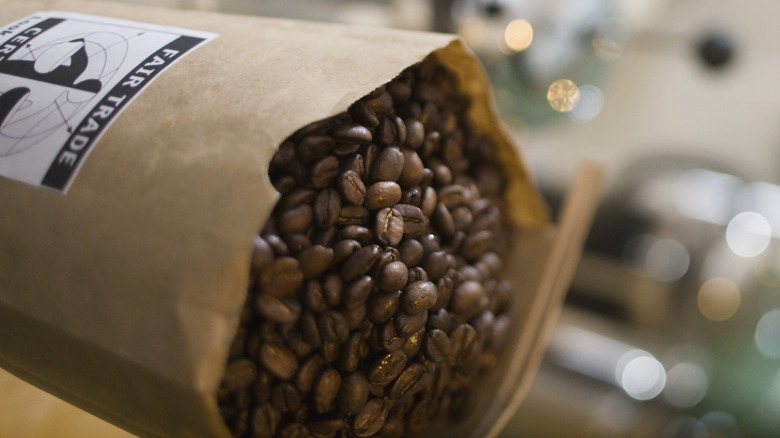The Roast Date On Your Bag Of Coffee Isn't The Same As A Best-By Date
Every bag of coffee has a story to tell. It's a story told in very few words, yet it carries a subtext filled with meaning and importance. Anyone who is into specialty coffee or who buys their beans from small, independent roasters understands that the label on their pound of coffee carries far more significance than what's simply written down. A coffee label tells you the beans' origin: where they came from, how they were grown and roasted, the flavors and body that come out in the brewing, and even a little note or bio from the roaster (via Surreal Coffee Roasters).
While it's all well and good that our coffee comes with its own unique backstory, the question most want to know about their coffee beans is how long they are going to last. According to the National Coffee Association, American coffee consumption is at a two-decade high. Consumer polling in March 2022 by the NCA revealed that nearly 85% of drinkers drink their coffee at home using a variety of methods: drip pots, single-cup servers, cold brew, and espresso machines. Therefore, understanding a coffee's shelf life seems more important than it has been in at least 20 years.
While the likelihood of home brewers getting the same ultra-fresh, barista-quality coffee in their own kitchen is unlikely, being able to know the difference between roast date and best-by date is key to gauging coffee freshness, if not overall quality.
A matter of freshness
At its most basic, a coffee's roast date signifies the date on which the beans were roasted. Digging a little deeper, however, we'll find that this simple date is a little more nuanced than that. The roast date is the best guarantee you have that you are buying the freshest possible coffee. While a coffee's best-by date is the figurative deadline for expiration, a roast date is going to clue you in on how flavorful your coffee will be and how long you have to drink it. It's important to note that mass-produced coffees, like Folgers, will have a best-by date, giving you absolutely no indication of when your coffee was actually roasted, calling into question its freshness (via Insider).
Perfect Daily Grind recommends buying coffee the way you would bread: a week at a time. Like fresh bread, coffee is on the clock before it goes stale. Three to five days post-roast is the optimal timeframe to get the most flavor from the peak age of your coffee, though you can conceivably stretch that window to between 8 and 21 days.
The roast date isn't everything though. If the beans are not good quality or the roast turns out poor, simply having a roast date on the bag doesn't indicate that good coffee is contained within.

